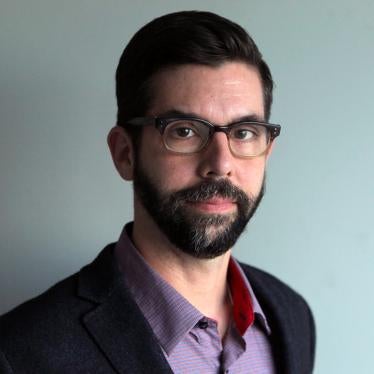One month after an attack with Sarin gas killed hundreds of people on the outskirts of Damascus, people in the affected areas are facing a humanitarian crisis, Syrian activists are warning.
The Syrian government, whose forces in all likelihood launched the chemical attack of August 21, is blocking the delivery of food and medical supplies.
As world leaders debate how to secure chemical weapons in Syria, they should demand that aid reaches the victims of chemical attacks, and others in need.
In the Western Ghouta town of Moadamiya, one of two areas where chemical weapons struck, an aid worker said the government has blocked food, milk and medicine for three months.
“We are prisoners in our city and homes,” the aid worker told Human Rights Watch by phone. He said residents were boiling tree leaves for soup with salt and olives. Starvation had claimed four children and two adults.
A report by the Syrian Violations Documentation Center (VDC) says conditions in Moadamiya have reached “catastrophic levels.”
An aid worker in Eastern Ghouta, also hit with chemical weapons, told Human Rights Watch the area is besieged and, “witnessing a shortage of every kind of food you can think of.” The painkiller paracetamol has jumped ten times in price, he said.
“The biggest fear we are all facing now is winter season,” the aid worker said. “I don’t know how we will survive the winter.”
The UN Office on Coordination of Humanitarian Assistance said more than half a million civilians are trapped in areas of rural Damascus, with both government and opposition forces blocking aid in violation of the laws of war.
Getting aid to Western and Eastern Ghouta is not logistically difficult – they lie kilometers from the center of Damascus. Syrian government forces surrounding these areas should allow civilians to get needed supplies. The UN Security Council should follow action on chemical weapons with a resolution that insists all sides allow the unhindered delivery of humanitarian aid.







